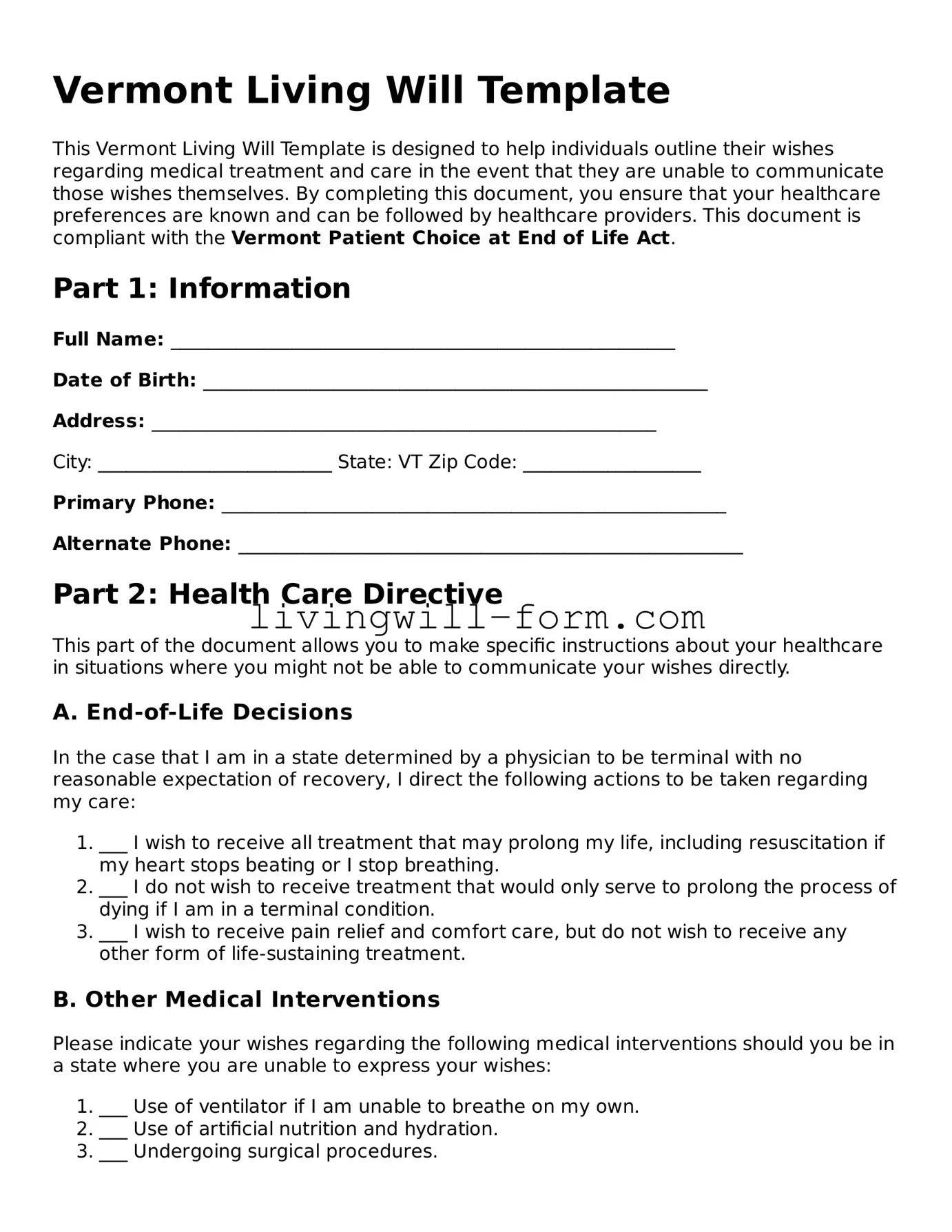Vermont Living Will Template
This Vermont Living Will Template is designed to help individuals outline their wishes regarding medical treatment and care in the event that they are unable to communicate those wishes themselves. By completing this document, you ensure that your healthcare preferences are known and can be followed by healthcare providers. This document is compliant with the Vermont Patient Choice at End of Life Act.
Part 1: Information
Full Name: ______________________________________________________
Date of Birth: ______________________________________________________
Address: ______________________________________________________
City: _________________________ State: VT Zip Code: ___________________
Primary Phone: ______________________________________________________
Alternate Phone: ______________________________________________________
Part 2: Health Care Directive
This part of the document allows you to make specific instructions about your healthcare in situations where you might not be able to communicate your wishes directly.
A. End-of-Life Decisions
In the case that I am in a state determined by a physician to be terminal with no reasonable expectation of recovery, I direct the following actions to be taken regarding my care:
- ___ I wish to receive all treatment that may prolong my life, including resuscitation if my heart stops beating or I stop breathing.
- ___ I do not wish to receive treatment that would only serve to prolong the process of dying if I am in a terminal condition.
- ___ I wish to receive pain relief and comfort care, but do not wish to receive any other form of life-sustaining treatment.
B. Other Medical Interventions
Please indicate your wishes regarding the following medical interventions should you be in a state where you are unable to express your wishes:
- ___ Use of ventilator if I am unable to breathe on my own.
- ___ Use of artificial nutrition and hydration.
- ___ Undergoing surgical procedures.
C. Declaration
I understand that this document provides only general guidance. I trust my healthcare providers to act in my best interest based upon the situation, my wishes as expressed in this document, and discussions with my healthcare proxy or family as applicable.
Part 3: Signature
To ensure that this living will is legally valid, your signature is required.
Date: ______________________________________________________
Signature: ______________________________________________________
State of Vermont, County of _________________________
This document was signed in my presence by (name of declarant) _____________________________ who is personally known to me or who has provided satisfactory proof of identity. I declare under penalty of perjury under the law of Vermont that the person signing this document in my presence has voluntarily signed this document in my presence.
Witness #1
Signature: ____________________________________ Date: ________________________
Print Name: ___________________________________________________________
Witness #2
Signature: ____________________________________ Date: ________________________
Print Name: ___________________________________________________________

